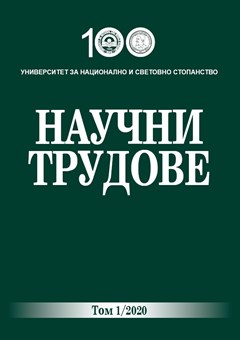Очите на Шехерезада... В търсене на смисъл между Рияд и Техеран. Правата на жените в Саудитска Арабия и Иран
Автор: Евгения Василева
The Eyes of Scheherazade… Looking for Meaning Between Riyadh and Teheran. Women’s Rights in Saudi Arabia and Iran
Evgeniya Vasileva
Резюме
Саудитска Арабия и Иран са две от големите държави в света, едната е млада, другата – стара, едната е сбор от номадски и полуномадски племена, другата е наследник на Персийската империя. Двете изповядват два различни варианта на ислям, съперници са за регионалната си роля в Близкия Изток, едната е кралство, другата е република. Общото между тях са петролът, политическата структура, при която светското и религиозното управление са равнопоставени и отношението към жените. Модернизацията и урбанизацията и в двете страни водят до свръх консерватизъм, пренос и радикализиране на някои от племенните традиции на живот в градски условия. В резултат, това са две от страните в света, в които правата и достъпът на жените до социално значими роли и дейности е силно ограничен. Тази статия има за цел да представи и анализира правата и забраните пред саудитските и иранските жени, тяхната борба за реформи и историческото ? развитие.
Abstract
Saudi Arabia and Iran are two of the biggest countries in the world. The first is young, the second is old. The first is an aggregate of nomad and semi-nomad tribes, the second is the successor of the Persian Empire. Both are professing two different versions of Islam and rival about their regional role in the Middle East. Saudi Arabia is a kingdom Iran is a republic. Similarities between both countries are the mineral resources, the political structure, characterized with equality of the secular and of the religious leadership and the attitude towards women. The processes of modernization and urbanization in both countries lead to an over-conservative governance and to diffusion and radicalization of some of their tribal tradition in urban conditions. As a result, these are two countries where the rights and the integration of women in social significant roles and activities are strongly restricted. This article aims to present and analyze the rights and the prohibitions for the women in Iran and Saudi Arabia, their fight for reforms and its historical development.
JEL: J12, J16, K36, K38

